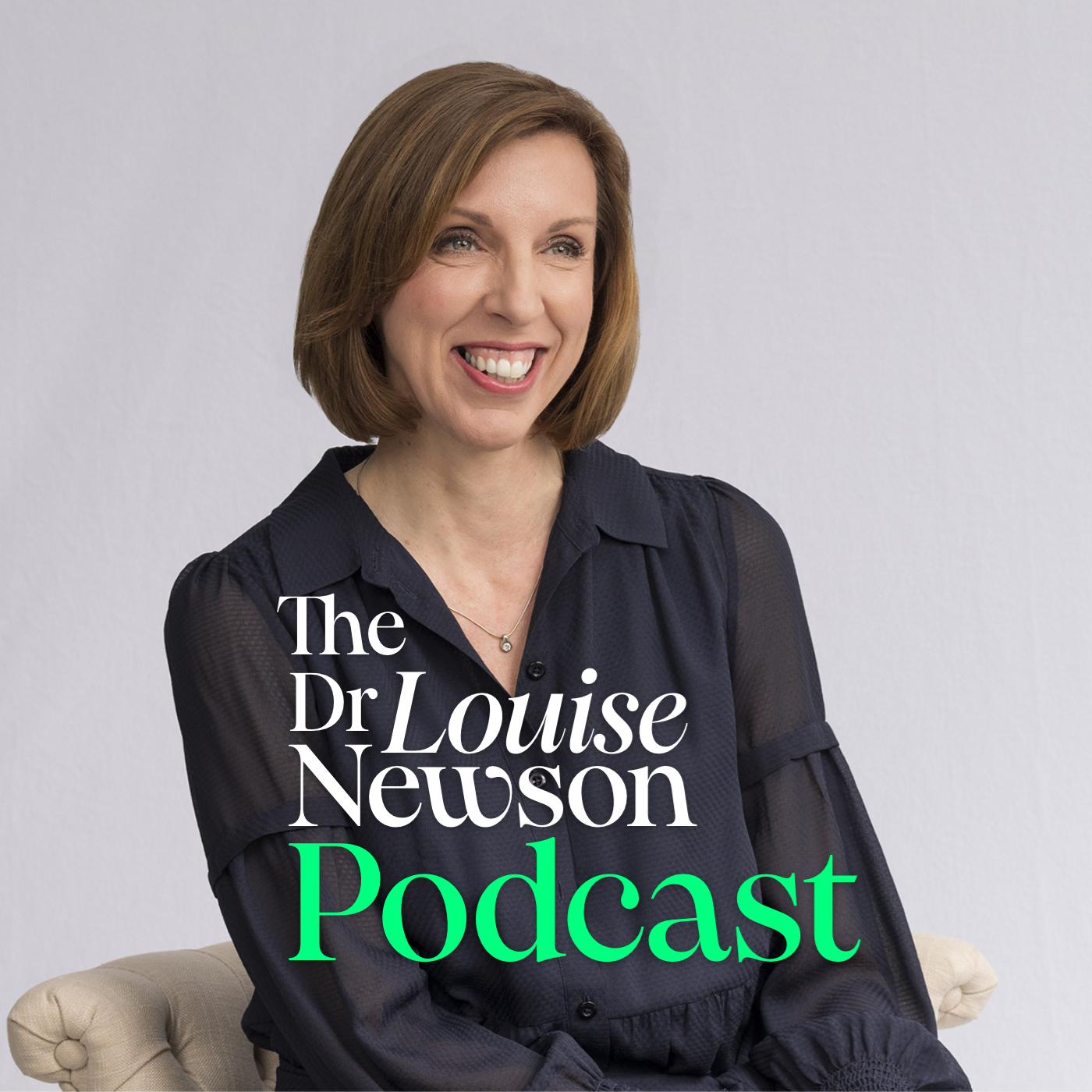
8.5M
Downloads
311
Episodes
Dr Louise Newson is an award-winning physician, respected women’s hormone specialist, educator, and author committed to increasing awareness and knowledge of perimenopause, menopause, and lifelong hormone health. Each week, Louise dives into the newest research, treatments and hot topic issues, providing accessible, evidence-based information to empower your future health. Joined by fellow experts and special guests, with answers to your burning questions, Louise explores how hormones impact every aspect of our lives. Described as the “medic who kickstarted the menopause revolution”, Louise aims to empower a generation of women to have a greater understanding, choice and control over their treatment, bodies, minds and future health through their hormones. She is the creator of the award-winning free balance app, a Sunday Times bestselling author and the founder of the Newson Health clinic. With over three decades of clinical experience, Louise is a member of the Royal College of Physicians, a Fellow of the Royal College of GPs, a Visiting Fellow at Cambridge, a regular contributor to academic journals including the Lancet and the British Journal of General Practice, and has been awarded an honorary Doctorate of Health from Bradford University. DISCLAIMER: The information provided in this podcast is for informational purposes only and is not intended as a substitute for professional medical advice, diagnosis, or treatment. Always seek the advice of your physician or other qualified health providers with any questions you may have regarding a medical condition. The views expressed by guests are their own and do not necessarily reflect the views of Dr Louise Newson or the Newson Health Group.
Episodes
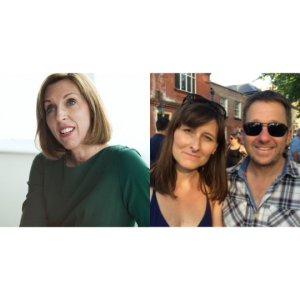
Tuesday Mar 08, 2022
Tuesday Mar 08, 2022
Content warning: suicide
Peter Smith joins Dr Louise Newson this week in a difficult and emotional episode. Peter lost his wife, Victoria, to suicide a year ago after she experienced a sudden change in her mental health in her late 40s. In their quest to understand how things could have got to such a crisis point for Victoria, Peter and his family have learnt more about the menopause and mental health, and they’ve raised the question of whether Victoria’s perimenopause could have been responsible for, or at least contributed to, her sudden mental illness when she had never previously experienced any such difficulties.
Peter describes the series of events that led up to Victoria’s death and how healthcare professionals dismissed the possibility of hormones playing a part in the worsening of her mental health, both at the time and during a recent inquest. Louise explains the work she is now jointly involved in, with Peter’s help, to raise awareness of the link between mood and menopause both in Pete’s local NHS Trust and nationwide.
Peter’s advice for partners if your loved one is struggling:
- Go with your partner to see a GP, and if needed, find someone that specialises in the menopause.
- Talk about it with each other. Listen and try and understand what they’re going through, and support them as best you can.
- Encourage them to talk openly with friends about it too.
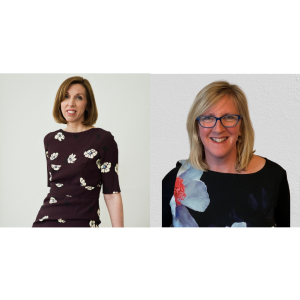
Tuesday Mar 01, 2022
Tuesday Mar 01, 2022
Sarah Davies is an experienced business coach and trainer who previously spent over 15 years in senior international corporate roles and as a head-hunter for senior executives. Sarah supported her sister, Dr Louise Newson, as business manager, six years ago when Newson Health menopause clinic was launched. Seeing how devastating the consequences of the menopause affect personal and professional lives, Sarah set up Talking Menopause to educate and support men and women across all levels on the impact of menopause at work.
In this episode, Louise and Sarah look back on starting their respective journeys into menopause care and support services, and discuss the real-life impact of the perimenopause and menopause in the workplace. Sarah shares some of the outcomes of her workshops and webinars and describes how Talking Menopause stimulates cultural change within organisations.
Sarah’s advice to workplaces:
- Everyone should be aware of the peri/menopause and respond to it as a normal process for their employees and their partners.
- Consider the practical side; where is the safe space for women to escape to? What are the practical solutions for women suffering at work?
And to women at work:
- Don’t suffer in silence, talk to a friendly colleague, download the balance app and go and see your healthcare professional if you’re not getting the right level of support. There’s a lot of help out there.
You can learn more about Sarah’s work at www.talkingmenopause.co.uk

Tuesday Feb 22, 2022
Tuesday Feb 22, 2022
Simona Stokes is an experienced counselling psychologist who uses CBT (Cognitive Behavioural Therapy) and EMDR (Eye Movement Desensitisation and Reprocessing) to help people with stress, depression and anxiety. After 20 years working in the NHS and voluntary sector, she then founded her own clinic in Birmingham, and has developed an interest and specialist knowledge in helping women with the emotional and psychological challenges of the peri/menopause. Simona’s personal experience of hormonal changes hit her hard and this led her to develop and successfully implement the psychological tools she had at her disposal to support her own journey and made her realise many women need help to understand the impact their hormones have on their moods, thoughts and emotions.
In discussion with Dr Louise Newson, Simona explains the power of estrogen as our primary fuel and the problems that can arise when estrogen falls. She explains the difference in perimenopausal depression compared to general depression, what CBT is and how it can help women at this time of life that can often be a pinch-point on our emotions. Simona advises how to look after yourself and your emotions and elaborates on why so many women feel a sense of loss of one’s role, of identity, and loss of purpose at this time.
Simona’s advice for women experiencing emotional challenges:
- Menopause is unavoidable but suffering is optional. CBT helps us to change the narrative we create about the difficulties we’re facing, and allows us to let go of the struggle against the changes we’re feeling. An attitude of compassion, kindness and curiosity to yourself will help you understand your difficult emotion in a more helpful way than being harsh, self- critical, and just wanting a feeling to go away.
- It’s really important to make peace with all your emotions. We’ve been conditioned to think that difficult emotions are undesirable and we must strive to feel happy and grateful. Increase your openness to difficult emotions and this will help you be more resilient and emotionally ‘fit’ to cope with your peri/menopause.
- ‘Emotion follows motion’, so engage in physical activity, even if you don’t feel like it, as physical activity is a powerful tool to change how you feel. Use your body to calm down your mind either through breathing and relaxation techniques or getting out there and being active.
Simona’s clinic and website details can be found here.
The ‘Meno D’ rating scale to detect depression that Simona refers to can be found here.
If you would like to access psychological therapies via the NHS explore your options here.
You can find Simona on her social media pages a:
Instagram - https://www.instagram.com/menopausecbtclinic/

Tuesday Feb 15, 2022
Tuesday Feb 15, 2022
Dr Louise Newson met Dr Naomi Jiagbogu over a decade ago at Birmingham Medical School when Louise was mentoring students who were studying medicine as a post-graduate degree. Naomi subsequently qualified, began her GP training and moved to Manchester with husband, Aria, who was training to be a paediatrician. Louise and Naomi discuss their memories of the post-graduate course and reflect on how the students were older, from more varied backgrounds and had broader life experiences than you would typically find on an under-graduate course and how these factors enhanced the student’s skills and learning, especially when relating to patients.
After beginning her GP training, Naomi’s husband Aria sadly developed a brain tumour and after surgery, treatments and a yearlong remarkable recovery, the cancer returned and Aria died in 2020. During his illness, Aria wrote two children’s books for their young son about sickness, loss and family, and he also wrote a memoir for adults titled, ‘Broken Brain: Brutally Honest, Brutally Me’. Together, Naomi and Louise discuss the importance of looking beyond the disease and connecting with the person not just the patient, and consider how personal suffering can transform the way you communicate as a clinician.
For more details about Aria’s story and books please visit his website https://www.ariatheauthor.com/
The books can be purchased from https://theendlessbookcase.com/authors/aria-nikjooy/
Or Amazon https://www.amazon.co.uk/Broken-Brain-Brutally-Honest-Me
The royalties from Arias children's books are going to Brain Tumour Research, Royal Medical Foundation, Society for the Assistance of Medical Families and Royal Medical Benevolent Fund.
If you have listened to Naomi’s story and would like read more and donate to Brain Tumour Research, please go to
https://www.braintumourresearch.org/stories/in-our-hearts/in-our-hearts-stories/aria-nikjooy
You can follow Aria on Instagram at @ariatheauthor64
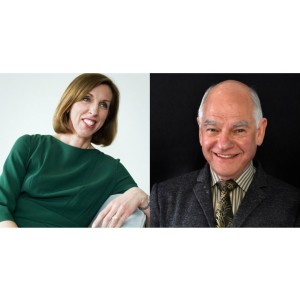
Tuesday Feb 08, 2022
Tuesday Feb 08, 2022
Medical oncologist, Dr Avrum Bluming makes a welcome return to the podcast this week to re-visit the hot topic of menopause hormone therapy after breast cancer. Avrum has spent decades studying the research on the benefits and risks of HRT in women with a history of breast cancer and is passionate about giving women clear, evidence-based information that dispels myths and combats the misinformation that has unnecessarily frightened women and clinicians for over 20 years.
In discussion with Dr Louise Newson, Avrum clearly explains what his recent review of the literature reveals about the safety of HRT and the benefits it brings for your future health. The experts highlight the gender disparities that are commonplace in how women with cancer are treated with regard to their hormones compared to men, and they also discuss the importance of patient-centred medicine and giving women choice.
Avrum’s 3 tips for women interested in exploring their menopause treatment options after breast cancer:
- Speak to your oncologist. Tell them about your menopause symptoms, ask to discuss the possibility of starting HRT and have a conversation about the benefits and risk for you individually.
- When it is available, take Avrum’s article that will be published in the ‘Cancer’ journal in May/June 2022, and show it to your oncologist and GP. Don’t accept a dismissal of your views – engage them in discussion.
- ‘Oestrogen Matters’ (2018, published by Little Brown) is a book co-authored by Avrum that is for women and clinicians, including a chapter on HRT after breast cancer, and it is heavily referenced to show all the evidence behind the information given.
Links to Avrum Bluming’s upcoming journal article will be published on the balance-menopause.com website when it is released.

Tuesday Feb 01, 2022
137 - The challenges and importance of eating healthily with Dr Rupy Aujla
Tuesday Feb 01, 2022
Tuesday Feb 01, 2022
Dr Rupy Aujla was in his mid-20s and beginning his career as a doctor when heart problems caused him to re-evaluate what he thought he knew about health, nutrition and medicine. Having previously rejected his parents’ influences of traditional Indian medicine, Dr Rupy began delving deeper into some of those concepts and the science of nutrition that he wasn’t taught at medical school.
In this episode, he talks to Dr Louise Newson about the principles of healthy eating, how a busy lifestyle and your environment often make it challenging to find and choose healthy, affordable foods, and the experts share their concerns around childhood obesity, anxiety around food, and the particular metabolic changes faced by those going through peri/menopause due to a lack of estrogen.
Dr Rupy’s 3 tips for improving your nutrition:
- Start with making a small change to your diet by adding just one more fruit, vegetable, nut or seed, at every meal if possible.
- Have a back-up healthy meal that’s easy to prepare, or stored in the freezer, for those times when you are tired and lacking motivation.
- Try to reflect what foods you really like but find a healthier version of it. For example, if you love pasta, add 3 different vegetables to any pasta recipe.
For details about Dr Rupy’s app, his books and recipe ideas, visit thedoctorskitchen.com

Tuesday Jan 25, 2022
Tuesday Jan 25, 2022
Kate Muir returns to the podcast to discuss her ground-breaking new book on the menopause, which she describes as the most difficult and complex subject she has investigated to date. Dr Louise Newson speaks to Kate about the shoddy science and lies that women have been told over the years and what Kate has learnt about past and current research from speaking to over 100 experts, and the real life impact on women from the conversations she has every week.
In this episode, discussion also turns to the ‘Davina effect’, referring to the impact of Kate’s Channel 4 documentary that was aired in May 2021, presented by Davina McCall, and has been a game-changer in raising the social and medical profile of menopause within primary care and in helping to inform and empower women to seek help.
Kate’s 3 wishes over the next 3 years:
- A symptom list to be given out at your local GP practice
- Good quality research into body identical estrogen and micronised progesterone
- Research happening in the UK into Alzheimer’s and the role of estrogen and testosterone in women’s brains
Kate’s new book is titled ‘Everything you need to know about the menopause (but were too afraid to ask)’ and is published by Gallery UK. A second documentary about the menopause with Davina McCall will be released in May 2022.

Tuesday Jan 18, 2022
135 - Tackling the Everest of menopause ignorance with Mariella Frostrup
Tuesday Jan 18, 2022
Tuesday Jan 18, 2022
Journalist and presenter, Mariella Frostrup, joins Dr Louise Newson for an energetic discussion and a whistle-stop tour through current insights and reflections on the way society approaches the menopause. Mariella talks about why she is ‘still banging on’ about the menopause, why you needn’t be afraid of HRT, and why it’s time to stop the silence and shame that surround it.
In 2018, Mariella presented one of the first documentaries on the menopause and broke the taboo of celebrities speaking honestly about their own experiences. Mariella’s recent book, ‘Cracking the Menopause: While Keeping Yourself Together’, separates the myths from the reality and offers expertise, hope and advice for all affected by the peri/menopause.
Mariella’s 4 hopes to improve the experience of menopausal women:
- Knowledge is our armour; we each need be more informed individually so we can combat the myths and ignorance we will be faced with.
- We need a trained menopause professional in every GP practice in the land and an invitation from the NHS for every woman to come for an appointment before the average onset of perimenopause, to let her know what will happen and how she can get help.
- There should be menopause groups everywhere, so everyone can find support and we should all educate our daughters about it.
- We need to ensure women are supported in the workplace so they can remain the valuable and experienced team members that they are.
Find out more about Mariella’s work at www.mariellafrostrup.co.uk
‘Cracking the Menopause: While Keeping Yourself Together’ is published by Bluebird.

Tuesday Jan 11, 2022
Tuesday Jan 11, 2022
Popular online personal trainer, James Smith, admits he only read Dr Louise Newson’s most recent book to check out the literary competition when their new books were released back-to-back. He bought a copy and read it on holiday and while he may have got some funny looks for his poolside choice of reading, James discovered many new insights about the perimenopause and menopause that he knew would really help his female clients in their quest to reach fitness and weight loss goals.
Louise and James discuss the common pitfalls many people go through when trying to exercise, perhaps out of obligation or to lose some of that midlife spread around the middle, and they warn against the plethora of misinformation on the internet about nutrition and training.
James’s 3 exercise tips for you:
- Ask yourself ‘how much do you want to train on a daily basis out of 10?’ If your answer is below a 5, don’t train but ask yourself ‘why?’ and tackle those things first, whether it be stress, lack of sleep or nutrition. Understand why you’re not motivated and fix that first.
- If you want to lose fat and/or manage your calorie intake, figure out your daily allowance and x7 for the week. You can overconsume on the weekend if you wish, but then divide what’s left by 5 for the days in the week and you’ll be surprised by how low it is. You will get a clear picture of how much you’re overeating on the weekend and it may make you think again about patterns of over-restricting then binging.
- Pick any exercise that you like and find rewarding, there isn’t a hierarchy of the ‘best’ ones, you have to enjoy it and want to do it.
For help with a personalised exercise programme and meal plans, check out James’ website at www.jamessmithacademy.com
James’ bestselling books, ‘Not a Diet Book’ and ‘Not a Life Coach’ are published by Harper Collins.
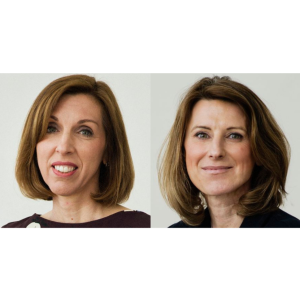
Tuesday Jan 04, 2022
133 - Recognising and getting help for your perimenopause with Dr Rebecca Lewis
Tuesday Jan 04, 2022
Tuesday Jan 04, 2022
Dr Rebecca Lewis, Clinical Director at Newson Health, returns to the podcast for the first episode of 2022 to discuss the perimenopause with Dr Louise Newson. The experts explain what the term means, what’s happening to your hormones during this phase, and how it can be diagnosed. Rebecca offers practical advice on how to speak to your healthcare professional to convey the range of related perimenopausal symptoms and raise the issue of hormones.
Find out what your increased health risks are when your hormones change and what you can do to mitigate these risks. The perimenopause is discussed as an opportunity to take stock and consider introducing some small changes to your lifestyle that will improve both your physical and mental health.
Rebecca’s 3 top tips if you think you might be perimenopausal:
- Take control and think about balancing your hormones and protecting your future health
- Get a diagnosis earlier rather than later, download the free balance menopause support app and start tracking your periods and symptoms
- Consider HRT to help your symptoms and feel better, and then you can look at making changes to your lifestyle that will benefit your future health and wellbeing.
